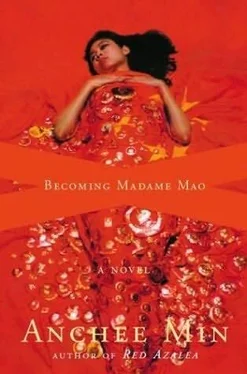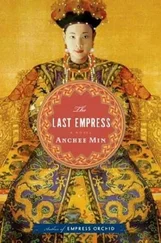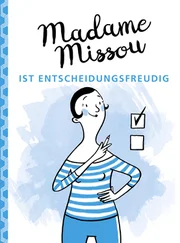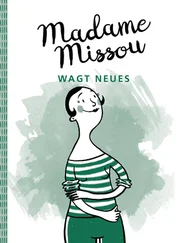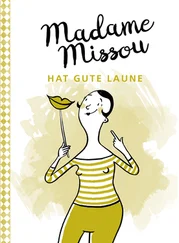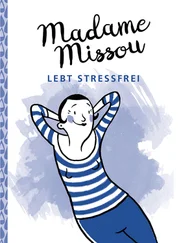Anchee Min - Becoming Madame Mao
Здесь есть возможность читать онлайн «Anchee Min - Becoming Madame Mao» весь текст электронной книги совершенно бесплатно (целиком полную версию без сокращений). В некоторых случаях можно слушать аудио, скачать через торрент в формате fb2 и присутствует краткое содержание. Жанр: Современная проза, на английском языке. Описание произведения, (предисловие) а так же отзывы посетителей доступны на портале библиотеки ЛибКат.
- Название:Becoming Madame Mao
- Автор:
- Жанр:
- Год:неизвестен
- ISBN:нет данных
- Рейтинг книги:4 / 5. Голосов: 1
-
Избранное:Добавить в избранное
- Отзывы:
-
Ваша оценка:
- 80
- 1
- 2
- 3
- 4
- 5
Becoming Madame Mao: краткое содержание, описание и аннотация
Предлагаем к чтению аннотацию, описание, краткое содержание или предисловие (зависит от того, что написал сам автор книги «Becoming Madame Mao»). Если вы не нашли необходимую информацию о книге — напишите в комментариях, мы постараемся отыскать её.
Becoming Madame Mao — читать онлайн бесплатно полную книгу (весь текст) целиком
Ниже представлен текст книги, разбитый по страницам. Система сохранения места последней прочитанной страницы, позволяет с удобством читать онлайн бесплатно книгу «Becoming Madame Mao», без необходимости каждый раз заново искать на чём Вы остановились. Поставьте закладку, и сможете в любой момент перейти на страницу, на которой закончили чтение.
Интервал:
Закладка:
Fairlynn regrets that she ever bothered to write to Mao. Mao doesn't care about her, not anymore. Yet Fairlynn can't stop thinking of him. She has a hard time believing that Mao's affection had been insincere. She remembers the last time they departed from one another. "Let us last," he whispered in her ear. She wonders if she offended him by pointing out his mistakes in 1957. He wouldn't admit that his Great Leap Forward was in fact a great leap backward. She was only speaking her conscience as a writer. She asks herself, Was it not her truthfulness and frankness that gained his respect and adoration in Yenan in the first place? Shouldn't he know all her criticisms came from a wish to consolidate his power? She believed that they had understood each other.
It must be Jiang Ching, then, Fairlynn concludes. Her evil hand must be behind this curtain.
This is not a fantasy, I tell the leading actress of my opera. The heroine is real. She has come through hardship. I want you to treat the red paint on your chest as a real wound. Feel its burn. Feel its consuming power. You are being eaten alive and are crying without being heard. Project your voice to its fullest range.
I come to the studio and meet my chief, Yu. I work with him closely on the filming. I am pleased with the progress. The details especially. The color of a patch on the protagonist's pants. The shape of her eyebrows. I like the sound quality of the drums in the background and the orchestra. I have gathered the top artists of the nation. I enjoy every expression on my favorite actress Lily Fong's face and I like the way they light her. I have told the crew that I will allow no imperfection. I order retakes. Endless retakes. I don't pass them until the footage is flawless. At the moment three thousand cultural workers are laboring on my projects. The cafeteria is open twenty-four hours a day. Yu finds me catching myself from falling asleep during my own speech. I am too tired.
Can I stop? It is a bloody battle with invisible swords. The choice is life or death. The other day I visited Mao and witnessed the deterioration of his health-he can no longer get himself out of the rattan chair without assistance. This frightened me. A house won't stay if the center beam falls. But I hide my fear. I have to. The nation and my enemies are watching my performance. I face a scary audience.
I phone Yu. Let's discuss how to make the political message in the operas exciting to the working class. We are courting the youth-it is crucial to my survival that they identify with my heroine. The loving and caring goddess who selflessly sacrifices herself for the people.
Yu picks actresses who resemble my look to play the lead. He comforts me.
I come to the set after conducting the day's affairs. I feel at home in the studios. That has always been the case. The lights soothe me. Mao has gone south again on his train. I have no idea where he is. He keeps his schedule a secret. And changes his mind often. I am trying to mind my own business. I am trying to think of the good Mao has done for me and must remind myself constantly to be grateful.
Indeed, I should be content about how things have finally worked out for me. With Dee commandeering the set, my films are coming out. The silent bullets that lie in the chambers of his soldiers' guns speak louder than my voice ever could.
On October 1, 1969, Taking the Tiger Mountain by Wit is released and is a hit. Within weeks, I hear its arias being sung on the streets. To make the script available to the public, I order it published in its entirety in People's Daily and the Liberation Army Daily. It takes up the whole paper and there is no space for other news or events.
In the next few months Story of a Red Lantern is completed and released to theaters nationwide. It is followed by two three-hour ballet films, The Women of the Red Detachment and The White-Haired Girl, and the opera films The Harbor, The Sha Family Pond and Raid the White Tiger Division.
What a feeling! I can't go anywhere without being congratulated.
Story of a Red Lantern is so popular that Mao expresses his desire to view it. I take it as an honor and accompany him to his private viewing booth. He likes everything except the ending where the heroine and the hero are shot.
It's too depressing, he complains. He suggests that I make it a happy ending. I disagree but promise to consider his remarks and tell him that I shall try my best to make the change.
The fact is that I am determined to do nothing about it. I won't touch the ending. It is symbolic. It is how I feel about life. The flying bullets are in the air. It's my life. So many times I have been shot.
It is an open space. Man-high wooden poles stand three feet apart against the gray sky. Twenty of them. Weeds are waist high. The wind is harsh. The prisoners are kicked out of the truck and tied to the poles. Blinders are removed. Colorless faces, some with towels stuffed in their mouths. The chief executioner shouts an order. Some prisoners begin to lose consciousness. Their heads drop to their chests as if they have already been shot.
Fairlynn is shaking hard. She struggles to breathe. Suddenly her legs start to walk by themselves. She walks toward the wooden pole involuntarily. She wails, Chairman Mao!
The chief executioner comes and pulls Fairlynn up by the collar. He drags her to the side. Fairlynn's mind is paralyzed. She feels as if she were a cooked fish lying on a plate with its spine taken out.
The soldiers raise their guns. The sound of the wind can be heard. One female prisoner turns around. Her eyes seek Fairlynn. It is Fairlynn's cellmate, Lotus. Fairlynn rolls on the ground and then rises up on her knees. Suddenly she sees Lotus wave her hands, punching her fists toward the sky. Lotus's mouth opens, shouting Down with Communism! Down with Mao!
The woman stops punching her fists toward the sky-she is hit by a bullet. But her mouth keeps moving.
In terror Fairlynn lifts her head and crawls toward Lotus. Her surroundings spin. The earth is upside down. Her ears begin to buzz. Suddenly everything starts to float soundlessly in front of her eyes.
The prisoners fall, scattered in all directions. Some of them bounce off the wooden poles. Shot-broken ropes drop to the ground. Lotus runs toward Fairlynn. She wags her body with her chin toward the sky. Behind her, the clouds have fallen to the earth, rolling like giant cotton balls.
The chief executioner shouts his last order. In extreme silence, Fairlynn witnesses Lotus's face break. The splattered blood paints a blooming chrysanthemum.
Chimpanzee experiment! Fairlynn passes out.
Although Fairlynn survives the Cultural Revolution, the moment Lotus's face became a bloody chrysanthemum, an important compartment in her own conscience bursts as well, as her memoir suggests (written in 1985 and published by South Coast China Publishing in 1997).
True, Chairman Mao has his weaknesses. They seem more poignant during the last few years of his life. I think it is all right to write about it. But under the circumstances I refuse to reveal more than what's known. There are people who intend to deny Mao's great contributions and heroic deeds. They not only want to smear his name but also want to have him nailed as a demon, and I will not allow that. No matter how wrongful the treatment I was made to endure in the past, I will not use my pen to write any word attacking Mao.
In later chapters the seventy-nine-year-old legend lingers on an encounter with Mao in a tone of elation:
It was in Yenan. I visited Mao's cave quite often. Almost every time I went he would give me a poem of his own or by others as a gift. All presented in his beautiful calligraphy on rice paper. Once Mao asked me, Do you agree that Yenan is like a small imperial court, Fairlynn?
Читать дальшеИнтервал:
Закладка:
Похожие книги на «Becoming Madame Mao»
Представляем Вашему вниманию похожие книги на «Becoming Madame Mao» списком для выбора. Мы отобрали схожую по названию и смыслу литературу в надежде предоставить читателям больше вариантов отыскать новые, интересные, ещё непрочитанные произведения.
Обсуждение, отзывы о книге «Becoming Madame Mao» и просто собственные мнения читателей. Оставьте ваши комментарии, напишите, что Вы думаете о произведении, его смысле или главных героях. Укажите что конкретно понравилось, а что нет, и почему Вы так считаете.
